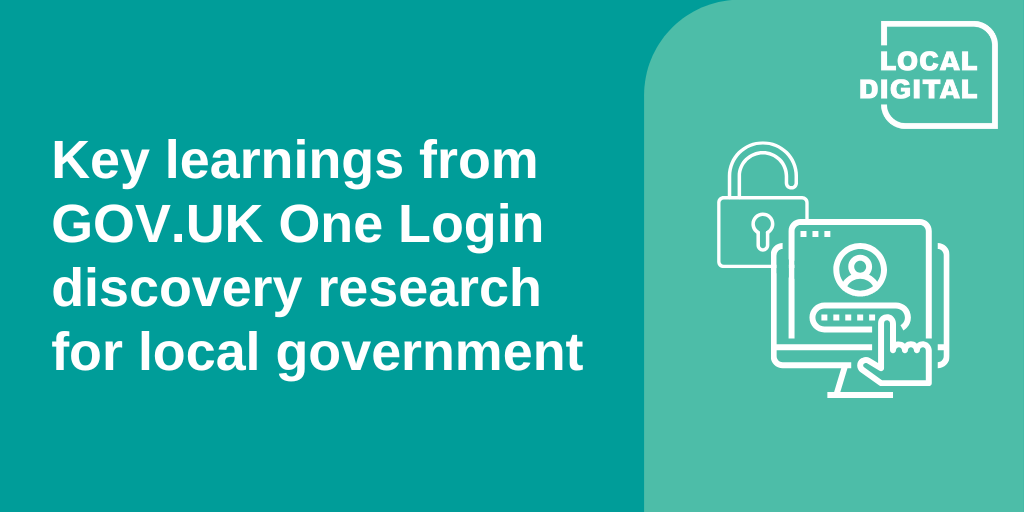
Key learnings from GOV.UK One Login discovery research for local government
In April, the Local digital team in MHCLG began a discovery project to explore how GOV.UK One Login could work for local government. The aim of the discovery is to build an evidence base for One Login’s product–market fit in local government, looking at value, feasibility, and adoption potential.
In this blog, we share key findings and insights from our research, based on conversations with councils and suppliers.
What we’ve heard from councils and suppliers
So far, we’ve spoken to 14 councils, 8 suppliers, and received survey responses from 36 additional councils. Thank you to everyone who has taken part so far.
Key themes emerging from the research include:
- cost savings are essential – councils told us this would be critical to secure leadership buy-in
- identity verification is a USP – councils value secure verification and the potential to share credentials across local and central government
- suppliers are open to integration – many are already using, or moving towards, OpenID Connect (OIDC) compatibility
- forward thinking but stretched – councils want to future-proof systems, but limited resources, capability, and competing priorities are barriers
- user adoption risks – concerns about digital exclusion, resident trust, and the transitioning of users to a new system
What councils need
Councils highlighted several must-haves for authentication and identity verification:
- flexibility to scale requirements up or down per service, applying the lowest necessary barrier to entry
- simple account creation, with ID verification only when needed
- residents to act on behalf of others while keeping control with the service user
- central visibility of customer activity across services
The value of One Login
Councils see three types of value:
- Immediate: stronger, more consistent identity verification with fewer manual steps
- Strategic: creating the digital infrastructure for joined-up services across local and central government
- Enabling: shaping the supplier market, promoting OIDC standards, and reducing duplication of effort and cost
But councils also warned that a delayed rollout could conflict with their own solutions already being developed. They need clear visibility of the vision, roadmap and timeline.
Next steps
We’re currently conducting deeper research with councils to:
- map identity verification needs across services
- gather cost and performance data
- understand residents’ views on the benefits and barriers
Findings will be shared with GDS to inform the future approach for local government.
Get involved
Councils can take part in this phase of discovery by:
- completing a short data template (3-4 hours total, with our support)
- participating in an optional 60-minute research session to share insights and test findings
If your council would like to take part, please submit this form.
If you have any questions about the research, please email [email protected]
Follow our channels for the latest updates and opportunities:
Categories: Blog posts
Tags:
 UK Ministry of Housing, Communities and Local Government (MHCLG)
UK Ministry of Housing, Communities and Local Government (MHCLG) 